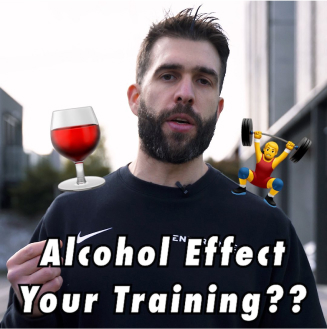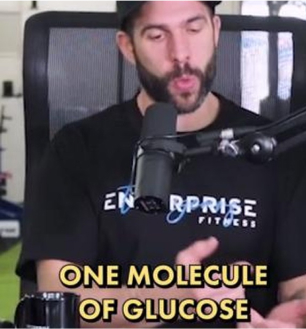Trans-fats are unfortunately common and wreak havoc on health. Trans-fats are not natural.
The easiest way to explain trans-fats is – a processed, chemically made fat that does nothing positive for the body. If that doesn’t put you off this will:
Shortening was developed in 1907 by the Proctor & Gamble Company. They were looking for an inexpensive alternative to paraffin (like kerosene) and beef tallow (think of lard) to make candles and soap as the meat packing industry controlled and monopolized the price of lard and tallow needed to make candles and soap (much like petrol prices are controlled by oil companies).
So with the help of German chemist, E.C. Keyser, they found a way to change the structure of the cottonseed plant to make the oil solid. They succeeded by inventing a process called “hydrogenation” which turns liquid oil into a solid. Now they could create as much soap and candles as they wanted without having to pay high prices for lard.
But with the discovery of electricity, the candle business rapidly declined and as such, their product had little use. Since hydrogenated cottonseed oil resembled lard, they thought, “Why not get back into business selling it as food?”
So the idea “Why can’t we cook with it?” launched a company known today as CRISCO.
 Proctor and Gamble launched “Crisco” in 1911 where they repackaged and marketed their “food product” to housewives as a “healthier” alternative to animal fats. As a marketing strategy, they published a cookbook where all the recipes used shortening (trans-fats) and Crisco oils. This free cookbook introduced this new product to the public. Soon vegetable oil (which is another way to say trans-fats) was used in baking and included in packaged foods.
Proctor and Gamble launched “Crisco” in 1911 where they repackaged and marketed their “food product” to housewives as a “healthier” alternative to animal fats. As a marketing strategy, they published a cookbook where all the recipes used shortening (trans-fats) and Crisco oils. This free cookbook introduced this new product to the public. Soon vegetable oil (which is another way to say trans-fats) was used in baking and included in packaged foods.
When I first made this discovery it seemed surreal. What’s even more surreal is the fact that the FDA (Food and Drug Administration) have listed hydrogenated fat in the “Generally Regarded as Safe” category (GRAS) despite 50 years of the worlds leading researchers producing evidence that trans-fats are undisputedly linked to ill-health and disease.
At the forefront of research, Walter Willent, Professor of epidemiology and nutrition, and chair of the Department of Nutrition wanted to see partially hydrogenated fats removed from the FDAs GRAS category, which would essentially eliminate their use. “Given that every major review of trans fats has concluded that intake should be as low as possible,” he said, “it is indefensible that they be allowed as GRAS constituents of foods.”
For more information visit:
http://www.motherlindas.com/crisco.htm
http://www.hsph.harvard.edu/review/rvw_spring06/rvwspr06_transfats.html
Common food items that contain trans-fats:
- Fried foods
- Donuts
- Packaged foods
- Crackers
- Pastries
- Refined and processed oils (Such as canola and vegetable oils)
- Fast food restaurants
And that is just a small example. Check food labels for the term “partially hydrogenated”. That means there are trans-fats in the product.
Just for fun, look in your cookbooks and recipe box. How many of these recipes call for shortening? Most people believe that shortening is better than butter for making an apple pie or a dessert.
For the record, nothing is better than pure, organic butter; it’s one of the most nutritious foods and has been around for centuries (unlike margarine or shortening).
Trans-fats are essentially fats whose chemical structure has been altered through a process called hydrogenation so that the oil is no longer liquid – it has that thick, almost buttery texture. It’s desirable for a company to use this kind of fat because it is very stable and can sit on the shelf for years without expiring. As Udos Erasmus would put it, “It’s a manufacturers dream.”
Do you have shortening in the cupboard? How long have you had it? People hold on to these tubs for years. Now is the time to throw it.
What are the health consequences of trans-fats?
The main problem with trans-fats is that the body has no idea what to do with it.
It’s not a natural substance so when digesting it, the body gets confused. As a result, health problems can arise. In other words, people who eat imitation products (such as margarine) that are made with trans-fats may think they are doing something good for their health because the label reads ‘low fat’.
In reality they’re consuming a poison. People who are scared to consume saturated fats don’t realize that unlike trans-fats, the body is equipped to digest saturated fat properly. Humans have lived off saturated fats for centuries. How do old foods cause new diseases?
By the way, margarine is one module off plastic!
So, why exactly is it bad? The big problem with them is that they are in a lot of foods that we don’t expect. Companies try and hide trans-fats with marketing leaving the average consumer clueless about what they are eating.
A big marketing trick that companies use is fortification. They find a substance that has been well researched such as omega 3 or vitamin C then they add it to things like margarine or orange juice. This again is another strategy to confuse the consumer.
I don’t care how much omega 3 they put in margarine, it’s still not healthy!
Trans-fats are a dangerous form of fat that can definitely cause weight gain. When they are in foods, they are usually there in large amounts. Think about what happens when you submerge something in a vat of hot oil. Anything that’s deep fried in trans-fats absorbs a significant amount of this poisonous fat, and not only are these foods high in fat, they are also devoid of nutrition.
On the other hand, natural high fat foods, such as nuts or avocadoes are very good for you because of the nutrients they contain (and the fat is of a healthy variety). The fats in natural products contain essential fatty acids which the body requires.
Here are some other reasons why trans-fats should be avoided at all costs:
- Insulin – Trans-fats affect your body’s insulin sensitivity mechanism by causing it to lessen. It also heightens the body’s insulin response to glucose.
- Cholesterol – Trans-fatty acids have a direct affect on cholesterol levels. It raises levels of LDL cholesterol which we often refer to as “bad” cholesterol. It also decreases the body’s HDL level which is also referred to as “good” cholesterol.
- Triglycerides – Since the body doesn’t exactly know what to do with trans-fats when you consume them, one of the things that happen is that it increases triglyceride levels. This can lead to other problems, particularly heart disease. Chemically, triglycerides are the form that fats take on in the body in order to be stored.
- Essential Fatty Acids – There are types of fat called essential fatty acids that actually benefit the health and can work with the body to prevent disease. Trans-fats interfere with the body’s use of these vital EFA’s. As a result, the body could exhibit signs of deficiency which could have serious health consequences.
- Immune system – Trans- fats in general cause the immune system to slow down which means that you will be more susceptible to illness.
- Liver – Trans-fats can also slow the liver down and raise liver enzymes.
As you can see, there is nothing good about trans-fats. Why would you even want to eat something that was originally designed to make candles? That’s just silly don’t you think?
Summing Things Up
Trans-fats (and sugar) are nutritional nightmares. The majority of packaged food contains either one or the other and sometimes both. You must avoid these.
- Go through your cabinets and read the labels. If you care about your health, throw away anything that contains trans-fats or refined sugar. Don’t keep these things in your home.
- Avoid trans-fats and refined/processed sugar – period. Some labels will list the oil as “partially hydrogenated”, “hydrogenated” or “vegetable oil”. Keep these products on the supermarket shelf.
- Even if a food says “no trans fats” read the label ingredients anyway. By law, if trans-fats fall under a certain amount (currently 0.5 grams) they do not need to list this on the label and can make claims, “no trans-fats”. Anything that has small amounts of trans-fats (including anything hydrogenated) in the ingredients should be avoided. Additionally, most vegetable oils are tested for transfats AFTER the deodorisation process which is what creates most of the transfat in the first place.
- If your diet contains foods that contain trans-fats and sugars daily, it is important to rethink this! (And that’s putting it very politely). If you want to have a great body, you must pay attention to your diet and habits. There is no excuse for eating trans-fats or refined sugars as a regular part of your diet.
- Keep in mind that your body does need SOME carbohydrates. However, avoid refined sugar (such as table sugar) at all costs. Include natural carbohydrates as a part of your diet. Remember to ask the question, “Could a caveman eat this?”
- Remember, avoiding trans-fats and refined sugars isn’t just advice on how to look good, its advice on how to live longer.
- A sugar “craving” is often a signal that your body’s blood sugar has dropped. It’s best to avoid crashing by planning healthy meals in advance to sustain blood sugar levels through the day.
- Your body NEEDS the right fat (EFA’s) – but it will never need chemically made, poisonous trans-fats.
Eat well and train hard!
Maximus Mark Ottobre
P.S. Check out my free diet and nutrition program at www.eatyourwaytoabs.com.au – all you need to do is enter your email.







